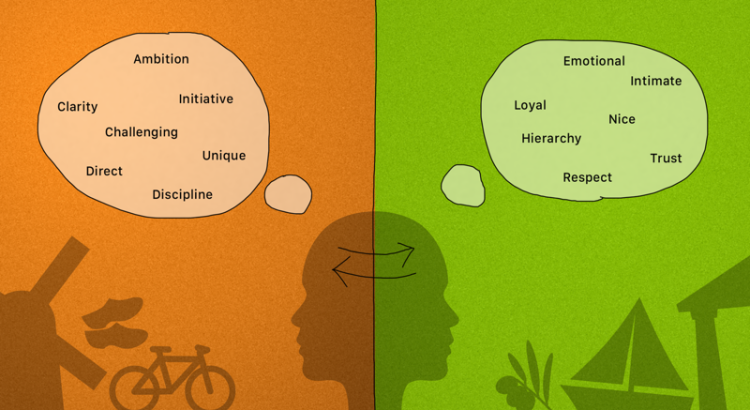A series of workshops designed for expats in the Netherlands!
A complete introduction to the most important differences in beliefs and values between cultures. The Dutch culture serves as reference culture.
Does any of the below ring a bell?
![]() Have you ever experienced rejection for something you thought was the ‘right’ thing to say or do?
Have you ever experienced rejection for something you thought was the ‘right’ thing to say or do?
![]() Do you feel that your reactions are different from what ‘they’ think as the ‘appropriate’ ones?
Do you feel that your reactions are different from what ‘they’ think as the ‘appropriate’ ones?
![]() And the worst: Is your different behavior interpreted as lack of competence or self-confidence?
And the worst: Is your different behavior interpreted as lack of competence or self-confidence?
In all such situations you may indeed experience frustration or even rejection!. Yet, when tuning in such unexpected feedback, you consciously or unconsciously go through your very own personal negotiations. How would you behave next time?
Whatever you feelings or arguments are ONE thing is for sure: You need to reduce negative feedback and deal more effectively with cultural conflicts. And that requires a bi-cultural mind: a mind that responds naturally in different cultural settings
Dutch people when dealing with the ‘other’ in personal or professional life may also find themselves desperate and lost.
Academic research among bicultural individuals children and adults has shown that men, for own psychological well-being, are able and do develop a bicultural mind: a mind that behaves naturally in culturally arisen conflicts and differences (see our ‘research’ section).
We help you through the following four sessions:
|
|
|
|
We consider ‘your cultural profile’
Your cultural state and eventual compatibility with or distance from the Dutch or other cultures will be captured by our tailor-made case studies and on-line questionnaire. Variations in the answers will be compared to established results from scientific research on cultural differences and discussed during each workshop.
Format
Each session runs for 120 min, including a break of 10-15 min.
In addition 30 minutes personal consultancy via Skype will be provided to each participant after concluding the workshop.
Benefits
These workshops will help you broaden your cultural horizons and turn frustration into the skill of having and using a bi-cultural mind:
You become aware of how culture(s) inform values and behavior.
You unlock your potential to respond naturally and appropriately to the ‘unspoken’ expectations of the ‘other’.
We will also help you distinguish individual differences from those differences acquired through culture!
Contribution, Time & Location
Sessions are held on Wednesday evenings 19:00-21:00.
Are you interested? Please feel free to contact us
Location: Amsterdam
Venue: To be announced by Registration (center of Amsterdam)
Contribution: € 240 for the 4 sessions (excl. 21% btw).
In interest of one specific session? Please feel free to discuss it with us!
These workshops were originally designed for ACCESS-nl.org ![]()
The workshop needs a minimum of 6 participants to proceed.
